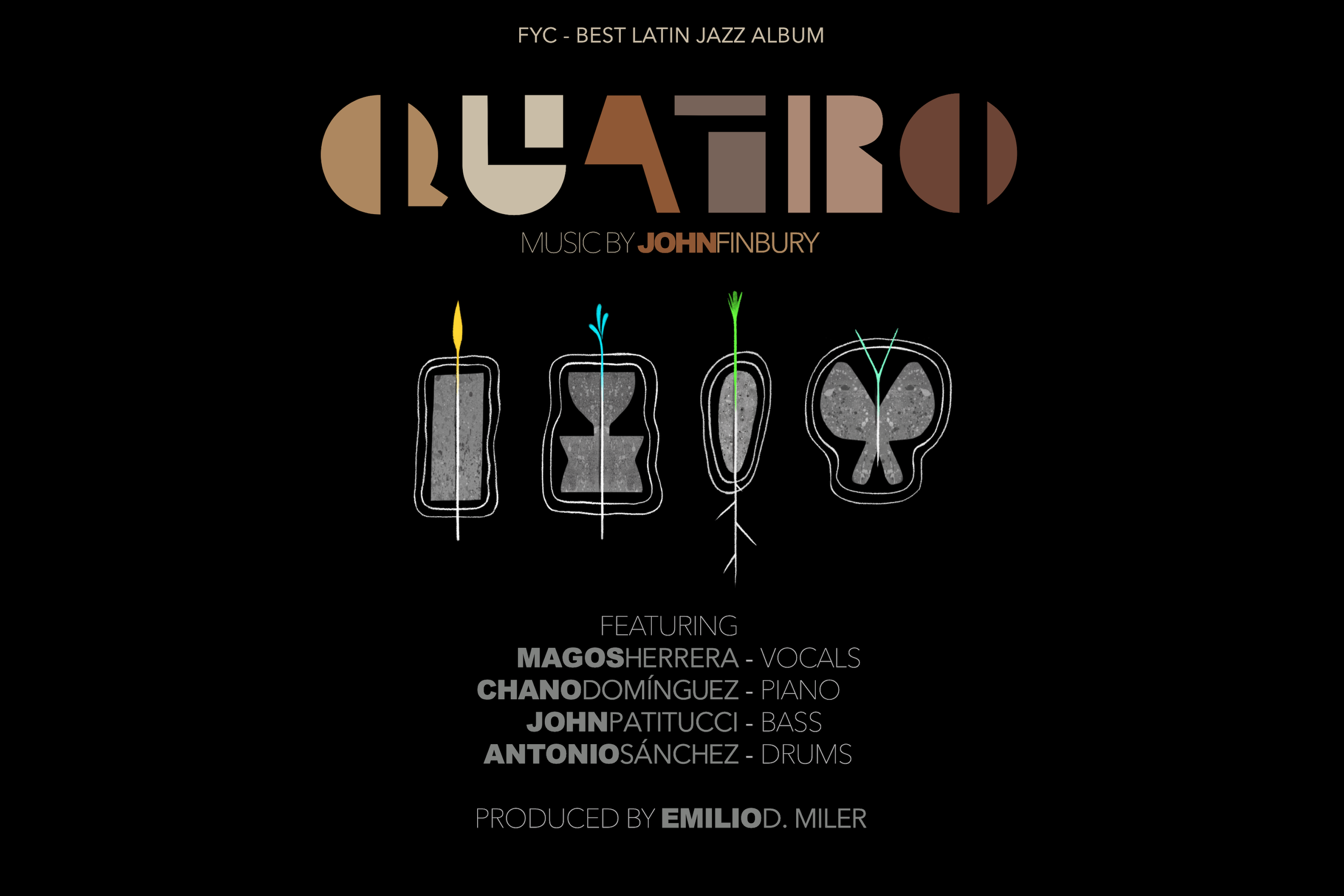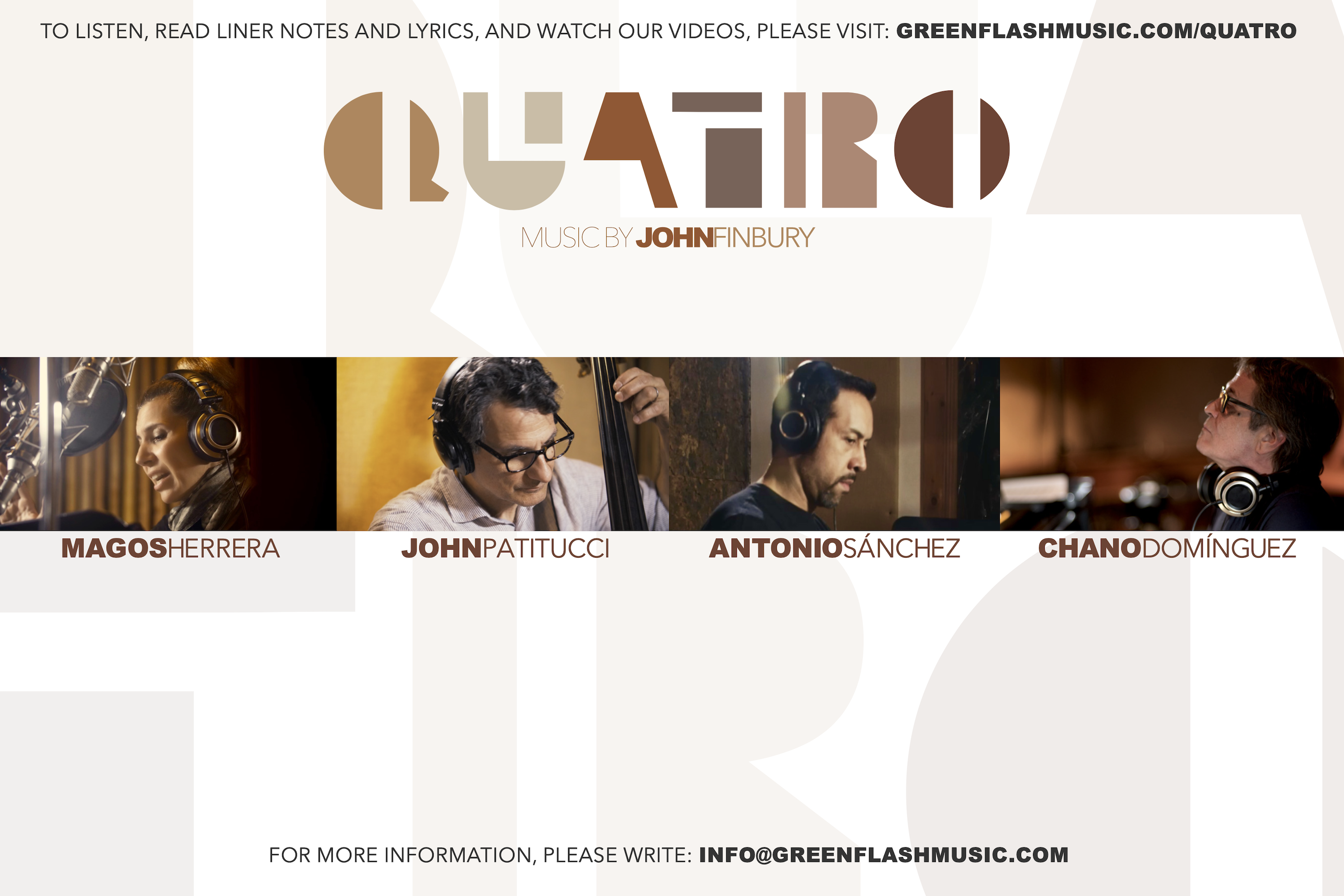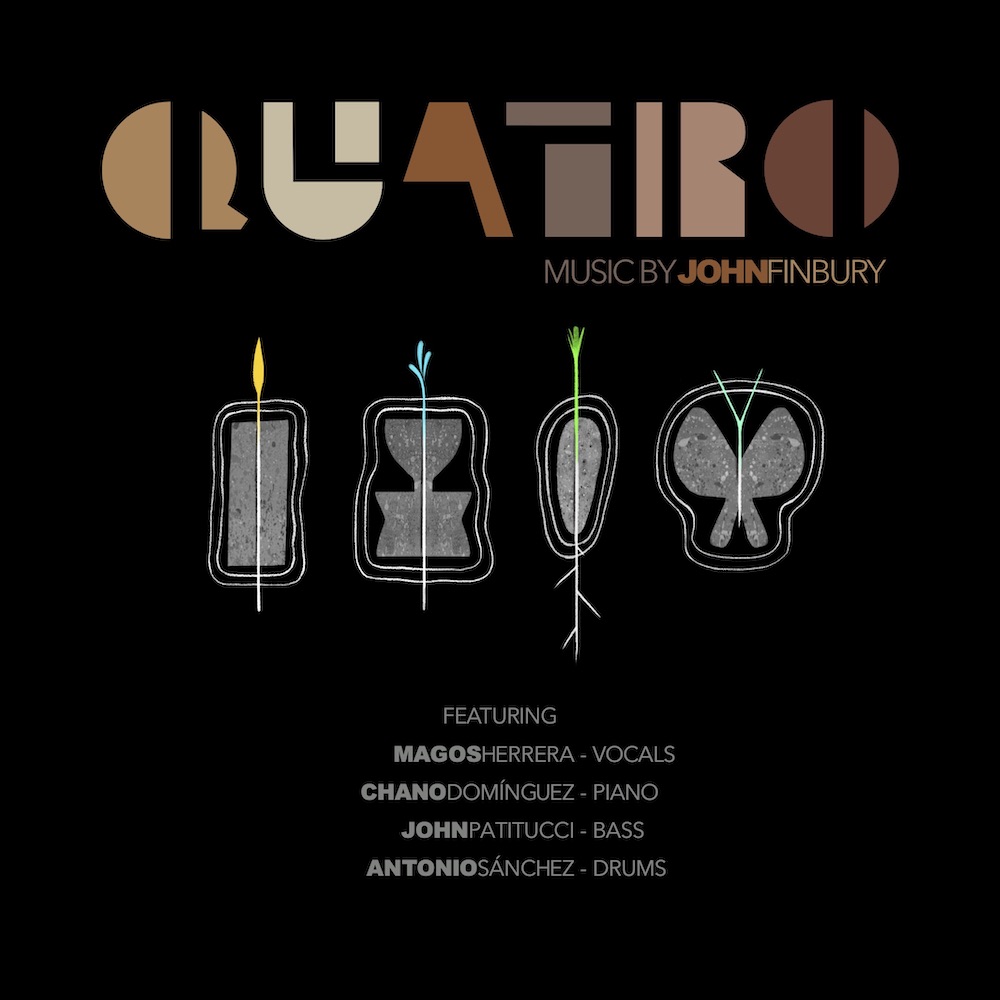John Finbury’s new album “QUATRO” premieres new music with broad Latin American and Spanish influences, mixed and matched in an unorthodox fashion.
Alternating vocal and instrumental tracks, the album was produced by Latin Grammy winner Emilio D. Miler, and features Magos Herrera on vocals, Chano Domínguez on piano, John Patitucci on bass, and Antonio Sánchez on drums.
Recorded over two sessions in New York in 2019, “Quatro” is both a celebration of cultural diversity and immigration, and a condemnation of those who seek restriction based upon prejudice.
The album opener, “Llegará El Día” (“The Day Will Come”), is a “Freedom Song” and a fierce assertion of the album’s concept, with influences of Peruvian Festejo and Mexican Huapango. The lyrics, penned by producer D. Miler, knit a poetic landscape with references to Mexican iconography and to someone, unnamed, who will soon disappear.
The pianist offers a solo cadenza to present the first instrumental, “Independence Day”, Finbury’s take on Spanish Flamenco, specifically Bulería. With John Patitucci on electric bass, the trio flies high, with Chano taking more solo spots throughout the song.
“La Madre De Todos Los Errores” (“The Mother Of All Mistakes”) features an intricate melody delivered with passion by Magos, which develops over a driving bass ostinato. The lyrics, written by Roxana Amed, are directed at someone whose assumptions and narcissism overlook the beauty that lies in the details which shape identity.
“All The Way To The End”, featuring lyrics by Patty Brayden, is a sultry Son-Bolero dance around the pledge of eternal love, sung in English with Spanish Flamenco ornaments. Chano Dominguez’s solo enters, piercing and playful, becoming the other ‘tease’ in this conversation. When the song appears to be over, a final section emerges featuring a melancholic vocalise in exquisite interplay with the band.
A solo acoustic bass cadenza resolves into an a capella vocal, and so “Comenzar” (“To Begin (again)” ) is born. With lyrics penned by Magos Herrera herself, the song is a homage to our capacity to reinvent ourselves and find new beginnings within the same story. The music displays influences of Argentine Zamba, and other folkloric music from the Andes that share similar rhythms.
Reminiscent of old school dance halls “Salón Jardín” (“Garden Ballroom”), is the trios’s take on a slow Bolero, fertile territory for an outstanding acoustic bass solo by John Patitucci. Chano Domínguez’s reprise of the melody is so personal that it feels like a solo in its own right.
Antonio Sánchez’s solo cadenza at the beginning of “Romp” feels like a disruption of the smooth tone set by the previous track… and it isn’t the last one!
A clave-based, New Orleans Second Line groove takes shape, a musical reminder that the South of the United States was once part of the same melting pot as the Spanish Antilles. “Romp” is the jam after the party, when musicians and a few lucky guests blend together in a celebration of togetherness.
John Finbury redefines his being American, not just as a native of the United States, but as a citizen of the Americas. His music on QUATRO often defies strict stylistic classifications, and finds unity in organic, intense renditions by a world-class band.
Make no mistake: “Quatro” is a political statement; a musical and poetic expression of freedom and the power of collaboration to contradict the fiction that those who are different should remain apart.
Though written and recorded before the world was stunned by a pandemic that has hindered our ability to gather and celebrate, “Quatro” presents a musical meeting place that strives to bridge that distance, and convey the certainty that we are better together.






